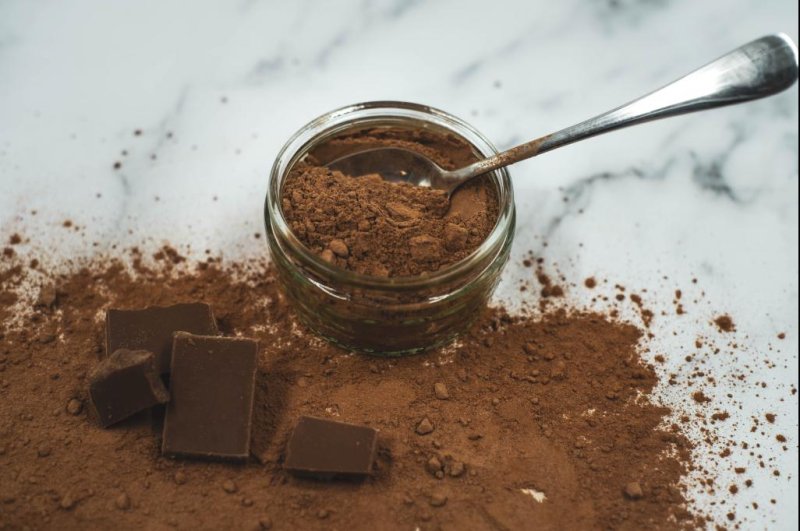Multivitamins, not cocoa extract, may benefit older people's thinking and reasoning, a new study suggests. Photo by formulatehealth/Wikimedia Commons
Sept. 14 (UPI) -- A new study found no benefit to older people from taking a cocoa extract supplement despite previous research suggesting it may benefit thinking and reasoning.
Yet, researchers found that older people may improve their intellectual functioning and protect against cognitive decline by taking a daily multivitamin.
They characterized their study as the "first evidence of cognitive benefit in a large longer-term study of multivitamin supplementation in older adults."
While those individuals taking the multivitamin showed "statistically significant cognitive improvement," the scientists said additional studies are needed to confirm these findings before any health recommendations are made.
The study's findings, published Wednesday in Alzheimer's & Dementia: The Journal of the Alzheimer's Association, were part of a broader investigation partly funded by chocolate maker Mars Inc.'s research unit.
An outside dietary supplement expert underscored the study's shortcomings, telling UPI that the takeaway is "chocolate might make you happier, but it won't make you smarter."
"For those of us who love chocolate, this was our best bet to discover the hidden benefits of chocolate on the brain -- a multiyear study funded by the world's largest chocolate manufacturer," said Dr. Pieter A. Cohen, associate professor at Harvard Medical School and an internist at Cambridge Health Alliance, a Harvard-affiliated safety-net health system.
He added: "Unfortunately, we're out of luck; even a Mars-funded study can't find a beneficial effect of chocolate on the brain."
Joanne Tehrani, a Mars spokeswoman, made the distinction between chocolate and cocoa extract in an email sent Wednesday afternoon.
"Cocoa flavanols are often destroyed in normal cocoa and chocolate processing. So, while chocolate may contain some cocoa flavanols, it is not a reliable source of these compounds," she told UPI.
For the new study, researchers from Wake Forest University School of Medicine in North Carolina, in collaboration with Brigham and Women's Hospital in Boston, followed 2,200-plus older adults, ages 65 and older, for three years.
The scientists concluded that individuals taking the daily multivitamin showed "statistically significant cognitive improvement." But they said additional studies must confirm these findings before any health recommendations are made.
Specifically, they estimated that three years of taking daily multivitamin supplements roughly translated to a 60% slowing of cognitive decline, or about 1.8 years.
The scientists said the benefits were "relatively more pronounced" in the study's participants who had significant cardiovascular disease, which is important because these individuals are already at increased risk for cognitive impairment and decline.
Nationwide, more than 6.5 million Americans are living with Alzheimer's disease, and 1 in 3 seniors die with the disease or another form of dementia, the association said.
"There's an urgent need for safe and affordable interventions to protect cognition against decline in older adults," Laura D. Baker, the study's co-principal investigator, said in a news release.
Baker, a professor of gerontology and geriatric medicine at Wake Forest University School of Medicine, said that cocoa extract is rich in flavanols, which previous research suggests may benefit cognition.
She also noted that older adults' deficiencies in several micronutrients and minerals, which are needed to support normal body and brain function, may increase their risk for cognitive decline and dementia.
For the COcoa Supplement and Multivitamin Outcomes Study for the Mind, or COSMOS-Mind, participants completed tests over the telephone at baseline and then annually so researchers could evaluate memory and other cognitive abilities.
Researchers tested whether giving them daily cocoa extract versus placebo or giving a multivitamin-mineral versus placebo improved cognition.
Cohen took exception to the study's design.
"The suggestion that multivitamins might help subjects perform a series of mental tests over the telephone is surprising," he said.
"Previously, a very large study found no benefits of multivitamins on memory loss. So, this area will require future research to determine if a multivitamin actually has any real benefits on memory."
COSMOS-Mind, funded by the National Institute on Aging of the National Institutes of Health, was an ancillary study to the COSMOS trial led by Brigham and Women's Hospital.
The COSMOS study of more than 21,000 men and women across the United States suggested that taking a daily cocoa extract supplement or a daily multivitamin-mineral supplement may have some benefit on heart health.
Along with NIH funding, COSMOS has a grant from Mars Edge, a business unit of Mars that focuses on nutrition research. Mars Edge provided the study with "infrastructure support and the donation of study pills and packaging," the release said.
But the researchers said the chocolate maker did not provide input on data analyses, interpretation of results or manuscript development.
In a statement, Mars Edge told UPI: "This trial, led by researchers at Wake Forest University, assessed the impact of cocoa flavanol or multivitamin intake on cognitive performance by taking a broad approach of combining many different cognitive tests into one score. Because of this broad approach, the study didn't examine the distinct effects of cocoa flavanols on individual areas of cognition.
"Previous research has shown that regular consumption of cocoa flavanols has been shown to improve cognitive function, including memory, specifically related to the hippocampus, a region in the brain that is sensitive to long-term memory decline. More research on cocoa flavanols and cognition, and the hippocampus specifically, is expected in the coming months."
Maria C. Carrillo, the Alzheimer's Association's chief science officer described the research in a prepared statement as "the first positive, large-scale, long-term study to show that multivitamin-mineral supplementation for older adults may slow cognitive aging."
However, Carrillo said that while the Alzheimer's Association is "encouraged" by the results, the organization is "not ready to recommend widespread use of a multivitamin supplement to reduce risk of cognitive decline in older adults."















